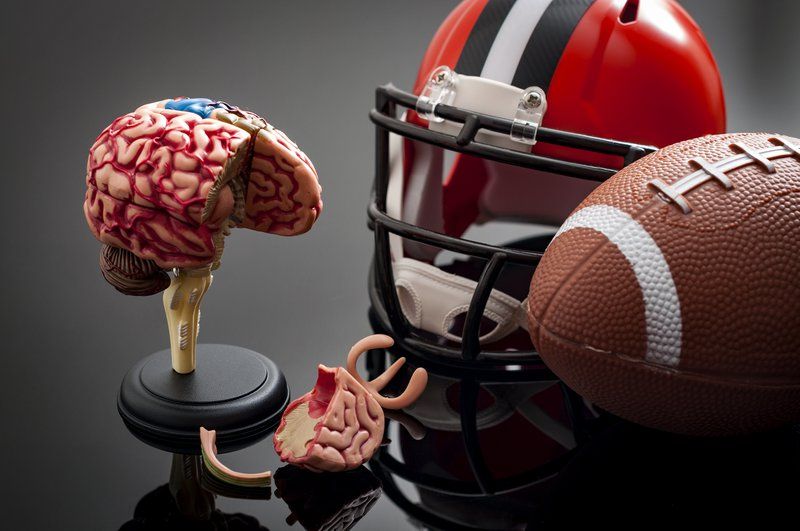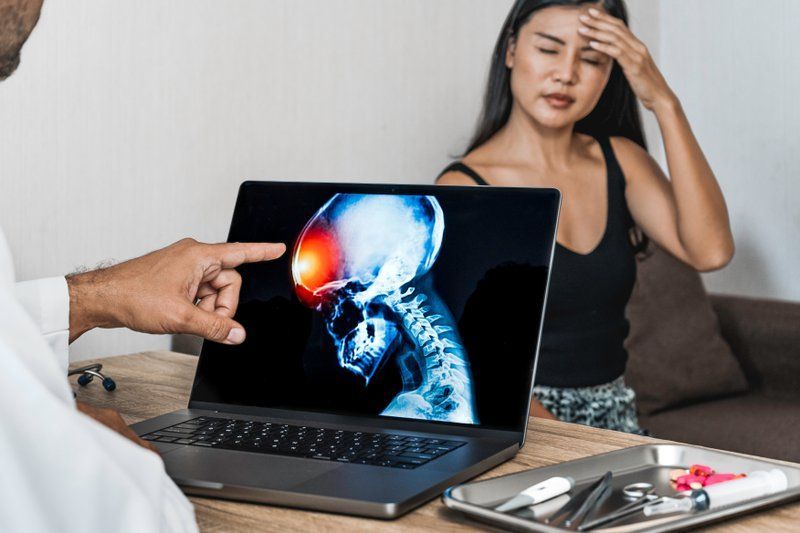BLOG
Traumatic Brain Injury: Symptoms, Effects, and Care Strategies
In this blog post, we will unravel the complexities of traumatic brain injury (TBI) and acquired brain injury (ABI) from a holistic perspective, shedding light on the neurological impact, recovery strategies, and innovative approaches to care. We will explore the specific symptoms and effects of TBI, highlighting the latest research findings to provide a comprehensive understanding of this condition. Additionally, we will look into the essential strategies for recovery and care, emphasizing the importance of personalized care plans and environmental adaptations to optimize the quality of life for TBI survivors. Join us as we navigate the intricate terrain of TBI, empowering both survivors and caregivers with valuable insights and support.
Holistic Care Strategies for Traumatic Brain Injury Recovery
Recovering from traumatic brain injury (TBI) necessitates a comprehensive approach to care, encompassing personalized strategies and dedicated support systems. Here, we uncover the essential elements of holistic care that play a pivotal role in optimizing the recovery and quality of life for TBI survivors:

- Personalized Care Plans: Tailoring care plans to the individual needs and specific challenges of TBI survivors is paramount. By customizing interventions and therapies, the focus shifts towards addressing unique cognitive and physical impairments, enhancing the overall recovery process.
- Rehabilitation Techniques: Implementing targeted rehabilitation techniques, including physical, occupational, and speech therapy, contributes significantly to the restoration of functional abilities and cognitive skills. These tailored programs aim to facilitate reintegration into daily activities and promote independence.
- Environmental Adaptations: Modifying the living environment to accommodate the needs of TBI survivors is instrumental in ensuring safety and comfort. From assistive devices to ergonomic adjustments, these adaptations create supportive surroundings conducive to the individual's recovery journey.
In navigating life after TBI, the integration of these holistic care strategies fosters a conducive environment for recovery, empowering individuals to regain autonomy and pursue a fulfilling life beyond their injury.
Understanding the Types of Traumatic Brain Injury
Traumatic brain injury (TBI) encompasses diverse manifestations, each with distinct impacts on cognitive and physical functions. Let's look at the specific types of TBI and their unique characteristics:
Focal Brain Injuries
Focal brain injuries result from localized trauma to the brain, often caused by direct impact or penetrating injuries. These injuries may lead to specific neurological deficits, depending on the affected brain area. Common focal brain injuries include contusions, hematomas, and intracerebral hemorrhages, each presenting distinct challenges for individuals and caregivers.
Diffuse Brain Injuries
In contrast, diffuse brain injuries involve widespread damage across the brain, disrupting the intricate network of neural connections. Diffuse axonal injury (DAI) and concussions exemplify this category, often giving rise to pervasive cognitive impairments and functional limitations. Understanding the nuanced effects of diffuse brain injuries is crucial in tailoring targeted care and support for TBI survivors.
By comprehending the differences between focal and diffuse brain injuries, caregivers, healthcare professionals, and individuals affected by TBI can navigate the complexities of the condition with heightened awareness and informed perspectives.
Harnessing Innovation for TBI Recovery
Cutting-edge technology and innovative therapies play a pivotal role in revolutionizing traumatic brain injury (TBI) recovery, offering renewed hope and opportunities for enhanced rehabilitation. Here, we explore the transformative impact of these advanced approaches:

- Virtual Reality (VR) Therapy: VR interventions provide immersive experiences designed to address cognitive, physical, and emotional aspects of TBI rehabilitation. By simulating real-world scenarios, VR therapy facilitates cognitive retraining, spatial navigation practice, and exposure therapy, contributing to the restoration of functional abilities and emotional well-being.
- Cognitive Training Programs: Tailored cognitive training programs leverage neuroplasticity to promote brain rewiring and functional recovery. These programs encompass various exercises targeting memory, attention, and executive functions, empowering TBI survivors to regain and enhance cognitive capabilities crucial for daily life activities.
- Innovative Therapies: Beyond traditional approaches, innovative therapies such as transcranial magnetic stimulation (TMS) and neurofeedback offer non-invasive methods to modulate brain activity and facilitate neural rehabilitation. These interventions hold promise in addressing specific cognitive impairments and promoting neuroregeneration post-TBI.
By embracing and integrating these innovative approaches into TBI rehabilitation, individuals can embark on a path of comprehensive recovery, harnessing the potential of technology and advanced therapies to rebuild their lives beyond the constraints of their injury.
The Vital Role of Caregivers for TBI Survivors
Caregivers play a pivotal role in the journey of traumatic brain injury (TBI) survivors, offering indispensable emotional support and practical assistance. Here, we shed light on the challenges faced by caregivers and effective strategies for empowering families and loved ones:
- Emotional Support: Caregivers serve as pillars of emotional strength, providing understanding, empathy, and encouragement to individuals navigating the complexities of TBI recovery. Their unwavering support fosters resilience and optimism, crucial for the well-being of TBI survivors.
- Practical Assistance: From facilitating daily activities to coordinating medical appointments and therapies, caregivers play an instrumental role in ensuring the seamless execution of rehabilitation plans. Their dedication and practical assistance contribute to the holistic care and comfort of TBI survivors.
- Self-Care Strategies for Caregivers: Recognizing the demanding nature of caregiving, it is essential to emphasize the significance of self-care for caregivers. Implementing self-care routines, seeking respite care, and accessing support networks are vital in preventing caregiver burnout and promoting their well-being.
By acknowledging the indispensable contributions of caregivers and providing them with the necessary resources and support, families and loved ones of TBI survivors can navigate the caregiving journey with resilience and efficacy.
In conclusion, it is imperative to advocate for heightened awareness and dedicated research endeavors aimed at advancing the understanding and management of traumatic brain injury (TBI). The ongoing commitment to TBI prevention, improved treatment modalities, and robust community support is essential in enhancing the quality of life for individuals and families affected by this condition. By fostering a culture of awareness and prioritizing research initiatives, we can contribute to the collective efforts in reshaping TBI care and support. For further information and resources, we encourage readers to visit Assured Supportive Living.
We are here to support
For those caring for loved ones affected by a brain injury and worried about accessing the exceptional care needed, Assured Senior Living's supportive living for brain injuries provides a solution to ease your concerns. We offer specialized programs designed to enhance the well-being, social interactions, and overall health of our residents. We are eager to share further information with you.
Individualized, amazing care in a true home setting. Contact us today, or download our free Family Decision Toolkit guide for more information.















